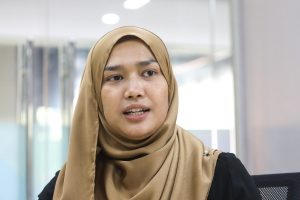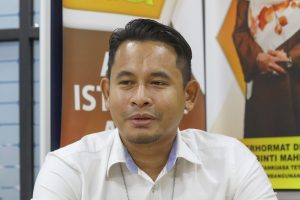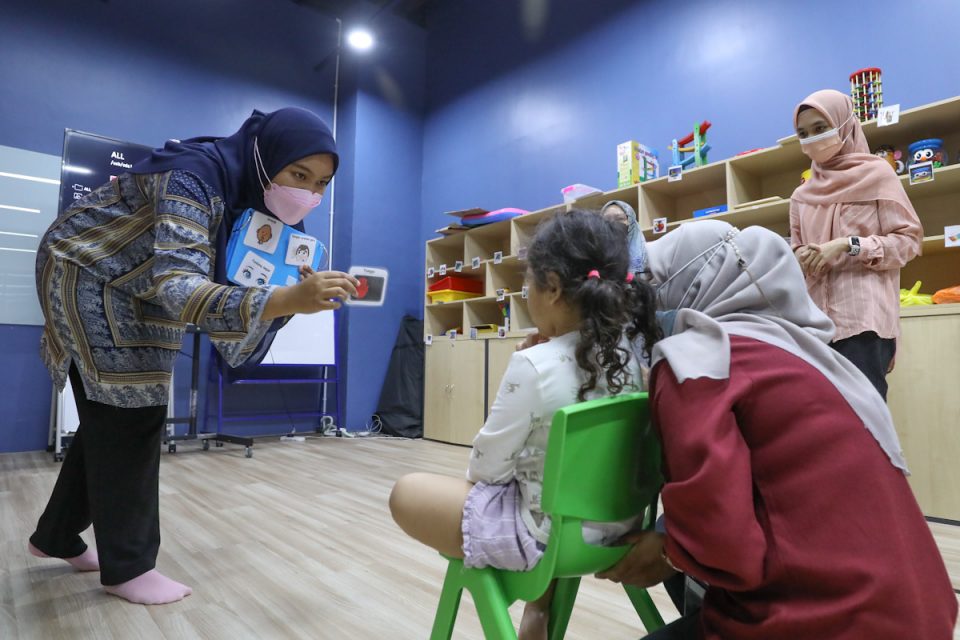By Nasuha Badrul Huzaini
IN every cell in the human body, there is a nucleus where our genes are stored. These genes carry the codes responsible for all the traits we inherit from our parents and are grouped along thread-like structures called chromosomes.
Typically, the nucleus of each cell contains 23 pairs of chromosomes. When an extra copy (triplication) of chromosome 21 happens, a baby with Down Syndrome comes into being. Each year, on the 21st day of the third month of the calendar — specially chosen to represent the triplication of the 21st chromosome — the world unites to celebrate people born with Down Syndrome and recognise their achievements, struggles, dreams and hopes.
In conjunction with World Down Syndrome Day, Selangor Journal reaches out to three educators at the Selangor Educational Support Centre for Special Needs Children (Anis Centre) directly involved in teaching children with Down Syndrome to share their wealth of experience in the field.
‘They matter’
Teacher Muhammad Ikhram Ehsan said that just like educating neurotypical children, lessons with Down Syndrome children must first and foremost be fun.
“The children are delightful, and they are friendly. They love activities that tickle their fancy. To be honest, I have not encountered any difficulties when teaching them. They can understand simple instructions very well.
“What I have to do is to create lessons that are centred around their daily routines, such as how they should handle their meals, their toilet etiquette, table manners and so on.
“We must ensure that the children can be independent in managing their routines, which is one of the major factors in determining whether they are fit to join a primary school or not,” he said when met at the Anis Centre recently.
When asked about the level of awareness people have towards the Down Syndrome community,

Muhammad Ikhram said he realises that parents nowadays are more open-minded in integrating their special needs children into the community.
“I have encountered parents who are embarrassed and reluctant to admit that their child was born with disabilities and refuse to let people know about it. What is there to be embarrassed about? Everyone is living different lives. Why do we need to compare our lives with others?
“As community members, we also have a role to play. If we see parents struggling to handle their Down Syndrome child in public, such as at shopping malls, parks or restaurants, do not stare at them. It is better to let the parents deal with the situation and go our own way.
“However, I am glad that the awareness level has got better over the years. As a teacher, I hope that Down Syndrome children will be given fair treatment when presented with job opportunities once they become adults. By letting them work, they know that they matter too,” he said.
Struggles

Occupational therapist at Anis Centre Nurul Husna Shuib said Down Syndrome children often have difficulty articulating their words. This is because their tongues are larger and thicker than average.
“Nonetheless, the condition never stops them from communicating with their teachers and friends,” she said.
“Another thing worth noting is that these children also usually have underlying illnesses such as heart disease and hyperthyroidism. Hence, their condition can be different depending on the severity of their illnesses.”
Nurul Husna, who has a brother with Down Syndrome, also shared that sometimes, simple movements can be strenuous for these special needs children because of their weak muscles.
“For example, the movement to pull up their pants after a wash, it looks easy to us but not to them. To overcome this, I encourage parents or caregivers to do more physical activities with them to improve their muscle strength,” she added.
Goals
Anis Centre assistant manager Danial Al Rashid Haron said since the centre was opened in September last year, they have received an overwhelming response from parents wanting to enrol their children.

“Through once-a-week intervention classes, the parents hope that their children can make significant progress, including being independent when they finally enrol in primary school and be able to read and write simple words. “These are the two main things we are focusing on. The children will master at least one life skill when they grow up.
“Other than Down Syndrome children, we also enrol children with other disabilities such as Autism, Attention-Deficit/Hyperactivity Disorder and Global Developmental Delay,” he said.
In August 2021, the Selangor government established Anis Centre as an educational support hub for special needs children aged two to six at the Ideal Convention Centre (IDCC) in Shah Alam.
State executive councillor for women and family development Dr Siti Mariah Mahmud said the centre’s services include screening and early intervention.
This article first appeared in the Selangor Journal monthly March edition, published on February 28, 2022.





